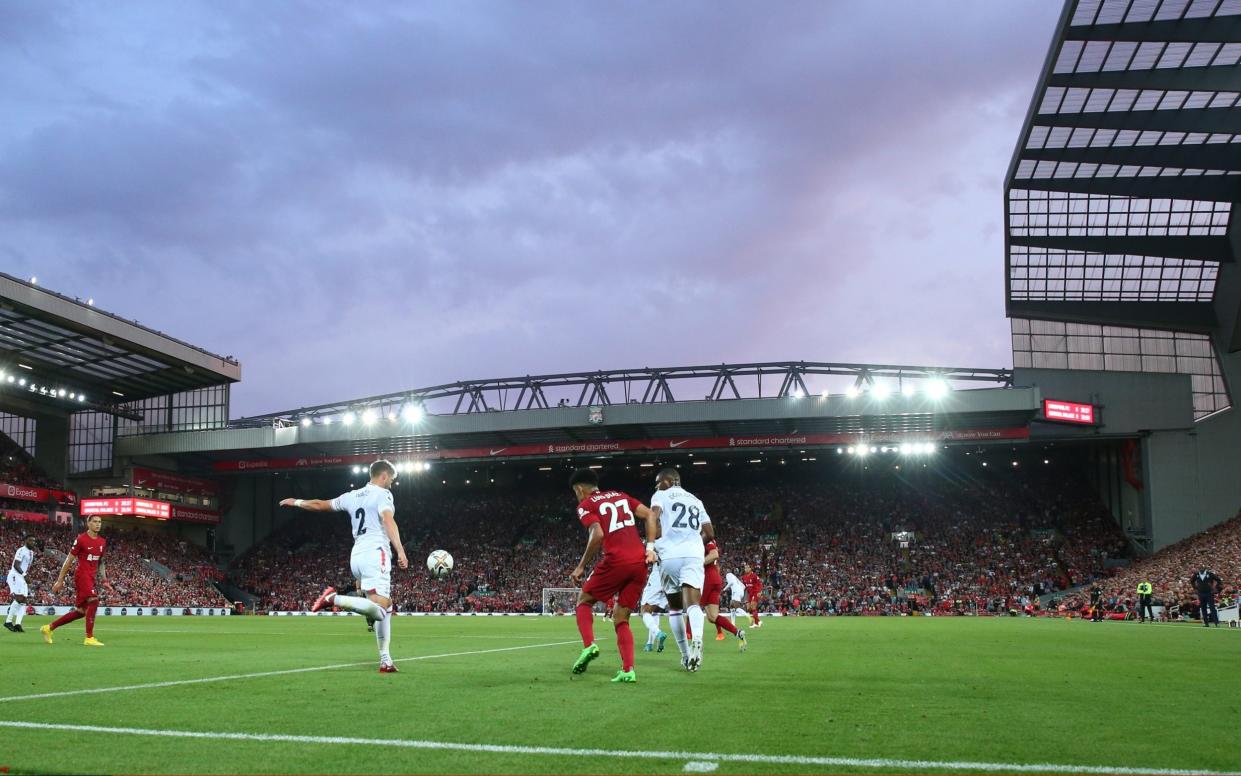Premier League profits defy Covid pandemic in contrast to European leagues

The Premier League was the only top European competition to increase operating profits while playing in empty stadiums during Covid.
Boom times for England's top tier were in stark contrast with the Championship, where average wage spend was 125 per cent of revenue.
The Premier League's cumulative operating profit increased from £49m to £479m last year, according to Deloitte’s Annual Review of Football Finance.
Despite empty stadiums, the European football market grew combined revenues by 10 per cent overall, with the uplift largely driven by deferred broadcast revenues and Euro 2020.
Premier League club revenues grew by eight per cent to £4.9bn over the course of the season, and are expected to hit £5.5bn in the 2021-22 season.
It was alone among the ‘big five’ European leagues to see clubs improve total operating profits in the year, Deloitte said. Net debt at the end of the 2020-21 season increased just four per cent to £4.1bn. In comparison, Championship clubs’ net debt at the end of the 2020-21 season was £1.8bn, an increase of 32 per cent.
Most worrying of all, was an analysis of wages, showing Championship clubs’ wage costs exceeded revenues for the fourth-consecutive year with a record high ratio of 125 per cent of revenue.
Premier League club revenues increased by eight per cent to £4.9bn in 2020-21, following the league’s first ever drop in revenues in the previous season.
This increase is largely attributable to the broadcast rebate of £330m which suppressed 2019/20 revenue, and the deferral of some broadcast income from the 2019-20 season into the 2020-21 financial period.
Wage costs increased five per cent to £3.5bn in 2020-21, meanwhile, with only seven of the 17 consistent Premier League clubs reporting a reduction in wages.
Tim Bridge, lead partner in the Sports Business Group at Deloitte, said: “As the Premier League enters its fourth decade, it’s further ahead of the competition than ever before, having emerged from the pandemic without as significant an increase in net debt as many might have expected.
The stark reality, however, is that the league last broke even at a pre-tax level in the 2017/18 season, highlighting the crucial need for strong governance and financial planning in the years ahead.”
Championship clubs’ combined revenues of £600m in 2020-21 was a decrease of £78m compared to 2019-20, largely due to matches behind closed doors or with restricted attendances.
In 2020-21, League One club revenues fell by 22 per cent to £129m, while League Two club revenues fell by 4 per cent to £94m. Bridge continued: “There now can be no doubt that significant change is required to drive long-term financial sustainability in the Championship. Without sustained collaboration across the English football system the gap to the Premier League, the competitive advantage of clubs with parachute payments and the cycle of clubs gambling on promotion will continue to increase.”

 Yahoo News
Yahoo News 